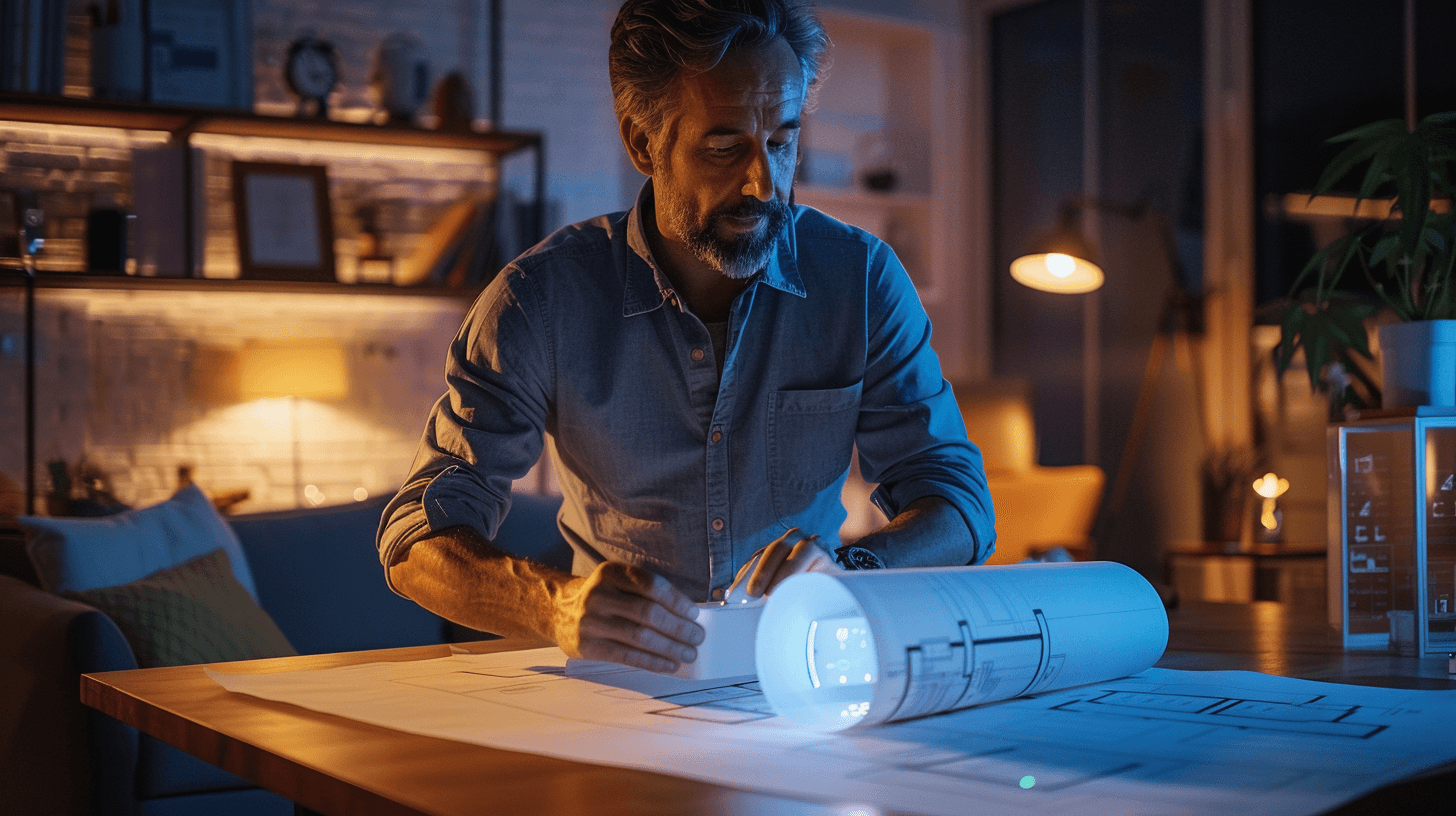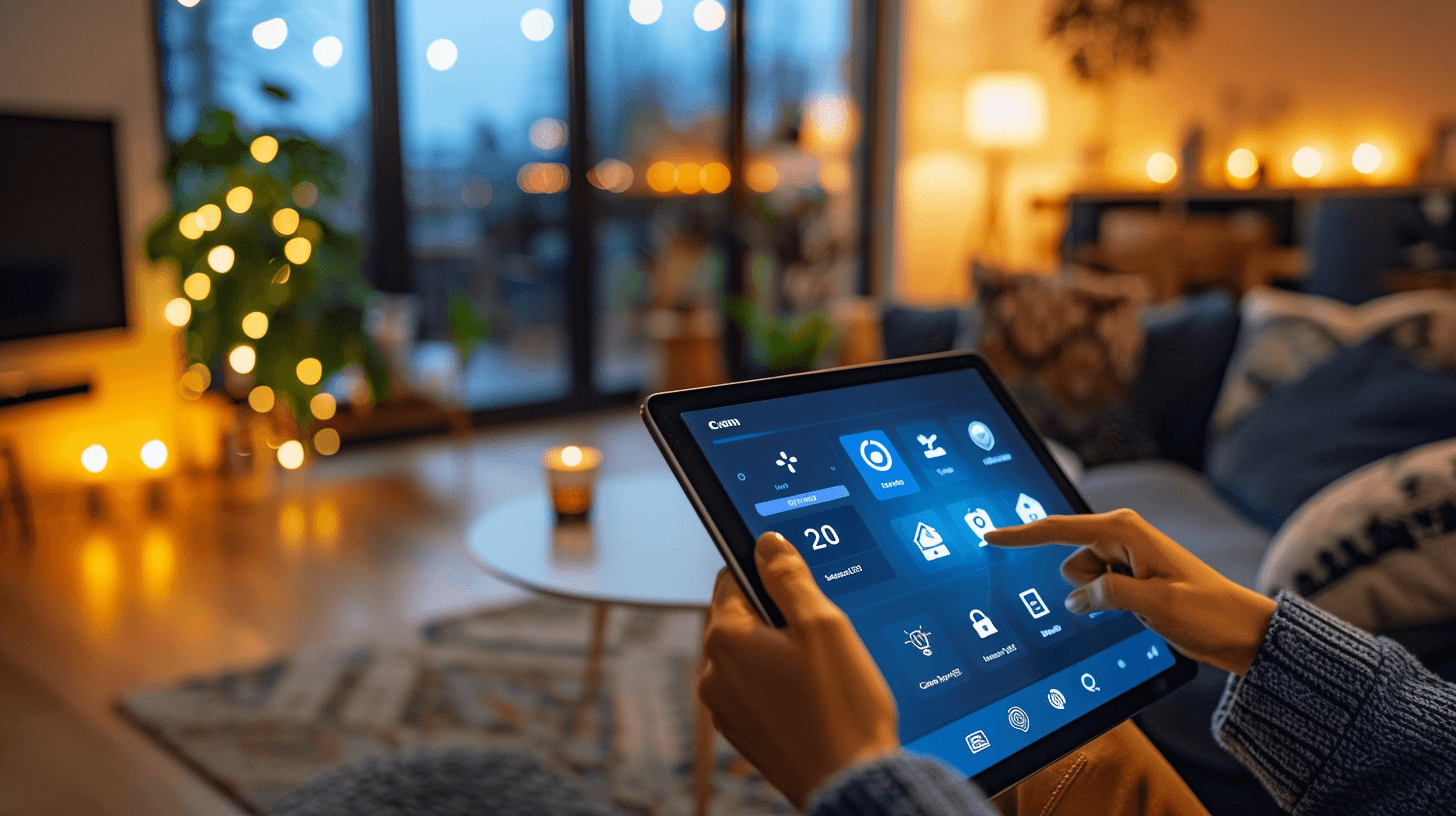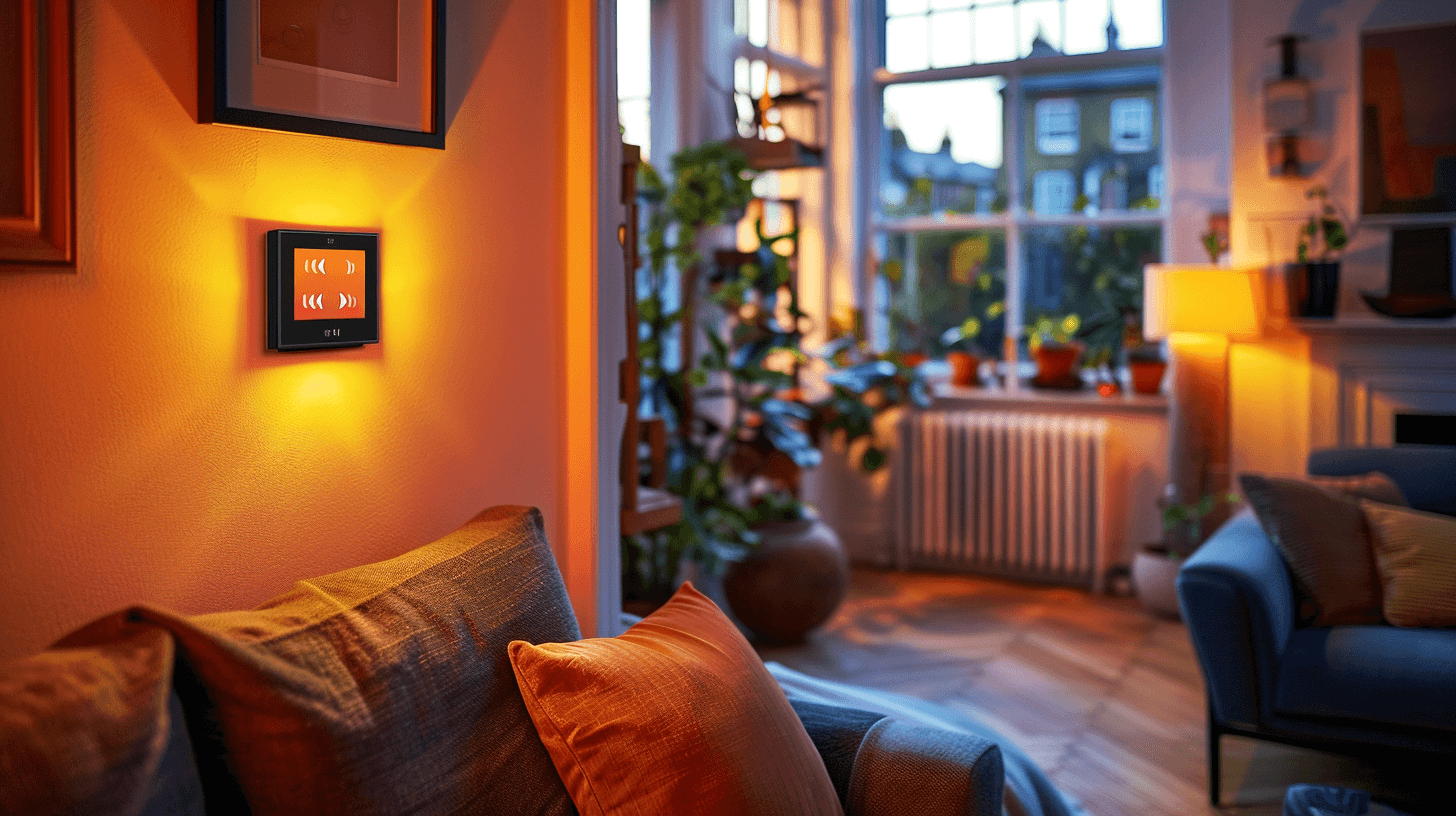 Planning your smart home – where to start
Planning your smart home – where to start

Understanding Smart Home Fundamentals
When embarking on the journey of integrating smart technology into your home, it’s essential to grasp the core benefits that such a system can provide. Smart home systems are designed to bring unparalleled convenience, allowing you to control various aspects of your home environment with simple voice commands or through a mobile app. The automation of routine tasks, such as adjusting thermostats or turning off lights, not only contributes to a more comfortable living experience but also enhances energy efficiency. By optimising the use of electrical devices, smart homes can significantly reduce unnecessary energy consumption, leading to cost savings and a reduced carbon footprint.
Core Benefits of Smart Home Integration
Smart technology also plays a pivotal role in bolstering home security. With devices like smart locks and surveillance cameras, you can monitor and protect your property remotely, offering peace of mind whether you’re at home or away. The ability to receive real-time alerts and access live feeds provides a level of vigilance that was previously unattainable with traditional home security systems.
Essential Components for Beginners
For those new to smart homes, the basic components to consider include smart speakers or displays, which act as the central hub for controlling other devices. Smart bulbs, plugs, and thermostats are also foundational elements that offer immediate benefits in terms of convenience and energy management. Understanding these fundamentals is crucial as they inform the planning process, ensuring that your smart home setup aligns with your specific needs and lifestyle preferences.
Selecting a Central Hub or Ecosystem

Choosing a central hub is pivotal for smart home integration as it serves as the command centre for your devices. It allows for streamlined communication and control over the various smart elements within your home. When comparing ecosystems like Amazon Alexa, Google Assistant, or Apple HomeKit, one must consider the compatibility with existing devices, the range of supported smart products, and the personal preference for the user interface.
Factors for Hub Selection
When selecting a hub, scalability and compatibility are paramount. You should consider:
- Device Support: Ensure the hub supports a wide range of devices, including future smart home innovations.
- Ecosystem Flexibility: Look for a hub that integrates well with various brands and technologies.
- User Experience: Choose an ecosystem that offers an intuitive and user-friendly interface.
“All Service 4U” and Central Control
“All Service 4U” can assist in establishing a robust central control system by:
- Expert Consultation: Providing professional advice on the best hub to suit your needs.
- Installation Support: Offering expert installation services to ensure optimal performance.
- Ongoing Assistance: Ensuring continued support for system upgrades and troubleshooting.
By carefully selecting a central hub and leveraging professional services, you can ensure a seamless and efficient smart home experience.
Building a Strong and Secure Network

The Role of Wi-Fi in Smart Home Setups
Wi-Fi networks are the backbone of smart home systems, providing the essential connectivity that allows smart devices to communicate and be controlled remotely. A robust Wi-Fi network ensures that commands are relayed promptly, and devices operate efficiently.
Ensuring Network Security
To protect against cyber threats, property owners should:
- Implement Strong Passwords: Use complex and unique passwords for Wi-Fi networks and device accounts.
- Regularly Update Firmware: Keep routers and devices updated with the latest security patches.
- Enable Network Encryption: Use WPA3 encryption to secure Wi-Fi networks against unauthorised access.
Advantages of Mesh Networks
Mesh networks offer significant benefits for larger properties by:
- Extending Coverage: Eliminating dead zones by providing consistent Wi-Fi coverage throughout the property.
- Enhancing Signal Strength: Maintaining strong connectivity for devices, regardless of their location.
- Facilitating Device Communication: Ensuring that smart devices can communicate with each other and the central hub without interruption.
Impact of Network Infrastructure
The performance of smart home devices is directly influenced by the quality of the network infrastructure. A well-configured network minimises latency, maximises throughput, and provides a stable platform for smart home operations.
Ensuring Device Compatibility and Interoperability

The Significance of Connectivity Standards
Connectivity standards like Zigbee, Z-Wave, and the emerging Matter protocol play a crucial role in smart home device compatibility. They ensure that devices from various manufacturers can communicate effectively, creating a cohesive smart home environment.
- Zigbee and Z-Wave: These are established standards that support a wide range of devices, facilitating reliable device-to-device communication.
- Matter: As a new industry-unifying standard, Matter aims to enhance interoperability and simplify the addition of new devices to smart home systems.
Challenges with Brand Diversification
Mixing devices from different brands can lead to compatibility issues, where certain devices may not communicate seamlessly due to differing protocols or proprietary technologies.
Achieving Seamless Smart Home Operations
To ensure seamless operation among smart home components, one should:
- Research Device Compatibility: Prior to purchase, verify that new devices are compatible with your existing smart home ecosystem.
- Invest in Cross-Compatible Platforms: Choose platforms and hubs that support multiple standards and can bridge different communication protocols.
“All Service 4U” and Device Compatibility
“All Service 4U” plays a pivotal role in ensuring device compatibility by:
- Providing Expert Guidance: Assisting you in selecting compatible devices that align with your smart home goals.
- Offering Installation Services: Ensuring that all devices are correctly installed and configured to work together.
- Supporting System Integration: Helping to integrate and troubleshoot devices from various brands for a harmonious smart home experience.
Prioritising Privacy and Data Security in Smart Homes

In the realm of smart home technology, privacy concerns are paramount as devices often handle sensitive personal information. Property owners must be vigilant in protecting their data to prevent unauthorised access and potential breaches.
Addressing Privacy Concerns
Smart home devices, by their nature, collect and process data to function effectively. This data can include personal habits, schedules, and even voice recordings. The concerns arise from how this data is stored, used, and potentially shared.
Protecting Personal Information
To safeguard personal information, property owners should:
- Regularly Update Device Software: Ensure all smart devices are running the latest firmware versions to address known vulnerabilities.
- Use Strong, Unique Passwords: Set robust passwords for Wi-Fi networks and individual devices, avoiding easy-to-guess combinations.
- Review Privacy Settings: Customise device settings to limit the amount of data shared and retain control over personal information.
Implementing Security Measures
Effective security measures for smart home devices include:
- Two-Factor Authentication: Add an extra layer of security to accounts associated with smart devices.
- Secure Wi-Fi Networks: Employ advanced encryption standards and secure router settings to protect against intrusions.
The Role of End-to-End Encryption
End-to-end encryption is critical in maintaining a secure smart home environment. It ensures that data transmitted between devices and to the cloud is encrypted, making it indecipherable to unauthorised parties. This encryption extends to all forms of communication, including voice commands and remote access, providing a comprehensive shield for your smart home ecosystem.
Planning for Future-Proof Smart Homes

Long-Term Smart Home Investment Considerations
When investing in smart home technology, it’s essential to consider not only current needs but also future advancements. Property owners should prioritise systems that offer flexibility and scalability. This includes selecting devices and platforms that are known for regular updates and compatibility with emerging standards.
Adapting to Future Technologies
To ensure adaptability to future technologies, property owners should:
- Choose Open Standards: Opt for devices that support open standards like Matter, which promises cross-brand interoperability.
- Invest in Upgradable Devices: Select products that offer firmware updates to extend their lifespan and add new features over time.
Benefits of Firmware Update Capabilities
Devices with firmware update capabilities offer several benefits:
- Enhanced Security: Regular updates can address security vulnerabilities, keeping your smart home safe.
- Improved Functionality: Updates can introduce new features and improve device performance.
- Longevity: Keeping devices up-to-date can prolong their useful life, providing better value for your investment.
“All Service 4U” and Future-Proofing
“All Service 4U” can assist in future-proofing your smart home setup by:
- Providing Expert Advice: Offering guidance on selecting devices that will remain relevant and functional as technology evolves.
- Installation and Configuration: Ensuring devices are installed and configured to accommodate future upgrades and expansions.
- Ongoing Support: Offering services to update and maintain your smart home system as new updates and technologies become available.
Implementing Energy-Efficient Solutions

Smart thermostats and energy monitoring devices are instrumental in reducing energy consumption and managing costs. By learning your schedule and preferences, smart thermostats adjust heating and cooling systems to operate more efficiently, while energy monitors provide real-time feedback on electricity usage, enabling you to make informed decisions about energy consumption.
Environmental Impact of Smart Home Technologies
Smart home technologies contribute to environmental sustainability by optimising energy use, which in turn reduces the carbon footprint of a household. Integration with smart grids also allows for more efficient energy distribution, potentially lowering the reliance on non-renewable energy sources.
Integration with Smart Grids
Smart home systems can be synchronised with smart grids to enhance sustainability by:
- Demand Response: Adjusting energy consumption in response to grid conditions, reducing strain during peak times.
- Renewable Energy Utilisation: Increasing the use of renewable energy sources when they are most available.
Role of Automated Routines
Automated routines in smart homes maximise energy efficiency by:
- Scheduling: Running high-energy appliances during off-peak hours.
- Adaptive Learning: Adjusting settings based on usage patterns to minimise wasteful energy consumption.
- Remote Control: Allowing you to turn off devices remotely, ensuring that no energy is wasted on unused appliances.
Professional Installation vs. DIY Approach

Evaluating Smart Home Installation Services
When considering smart home installation, the choice between professional services and a do-it-yourself (DIY) approach hinges on several factors:
- Expertise: Professional installers bring specialised knowledge, ensuring devices are set up for optimal performance.
- Time: A professional service can complete the installation more quickly than a DIY approach.
- Complexity: For intricate systems involving multiple devices and standards, professional installation can mitigate the risk of errors.
Comparing Costs and Customization
The DIY approach may offer cost savings and a higher degree of customization, but it requires a significant time investment and a certain level of technical proficiency. In contrast, professional services may involve higher upfront costs but provide peace of mind with expert setup and support.
Required Expertise for Successful Installation
A successful smart home installation requires:
- Technical Knowledge: Understanding of networking, device compatibility, and system integration.
- Problem-Solving Skills: Ability to troubleshoot issues that may arise during setup.
- Attention to Detail: Ensuring all devices are configured correctly and securely.
Opting for “All Service 4U”
Property owners should consider “All Service 4U” for professional installation when:
- Complex Systems: The smart home setup involves advanced technology or extensive device networks.
- Security: Ensuring that all devices are installed with robust security measures.
- Support: Access to ongoing assistance for maintenance and upgrades.
Overcoming Common Smart Home Challenges

Smart home planning and implementation can encounter several hurdles, from device compatibility issues to keeping pace with evolving technology standards. Property owners can navigate these challenges by staying informed and seeking expert guidance.
Addressing Compatibility and Standards
To ensure a smooth smart home experience, consider the following:
- Research: Stay updated on the latest smart home standards and protocols, such as Matter, to ensure future compatibility.
- Consultation: Engage with professionals who can provide insights into the best devices and systems that work cohesively.
Enhancing User Adaptability
Adapting to smart technology is crucial for a successful smart home setup. Strategies to enhance user adaptability include:
- User Education: Invest time in learning how your smart home devices function and how they can be optimised for your lifestyle.
- Simplification: Choose devices with user-friendly interfaces and straightforward controls to ease the transition into smart home usage.
“All Service 4U” Solutions
“All Service 4U” addresses common smart home challenges by:
- Tailored Solutions: Offering customised recommendations that fit your specific smart home needs and preferences.
- Technical Support: Providing ongoing technical assistance to resolve any issues that arise during the use of your smart home system.
- Up-to-Date Expertise: Ensuring that property owners benefit from the latest smart home innovations and solutions.
Tailoring Smart Homes to Individual Preferences

Smart homes offer the flexibility to customise environments to suit individual lifestyles and preferences. Through advanced programming, users can create settings that automatically adjust lighting, temperature, and even play music to match their daily routines.
Benefits of Scene Automation
Scene automation provides several advantages:
- Convenience: Automate tasks to occur without manual intervention, such as turning off all lights at bedtime.
- Energy Efficiency: Programme devices to operate only when needed, reducing unnecessary energy consumption.
- Mood Setting: Instantly create the desired ambiance for any occasion with preset scenes.
Enhancing the Smart Home Experience
Personalization significantly enhances the smart home experience by:
- Adapting to User Behaviour: Learning routines and making proactive adjustments for comfort and efficiency.
- Facilitating Remote Control: Allowing users to manage their home environment from any location.
Considerations for Renters
Renters may require temporary smart home solutions that can be easily installed and removed without altering the property. They should consider:
- Non-Permanent Installations: Opt for devices that don’t require hardwiring and can be taken to a new residence.
- Wireless Options: Choose wireless devices that offer flexibility in placement and are less invasive to instal.
Staying Informed on Smart Home Developments

In the rapidly evolving smart home market, staying current with the latest devices and trends is crucial for property owners looking to enhance their living spaces with technology.
Resources for Smart Home Research
To make informed decisions about smart home technology, you should utilise:
- Online Reviews and Comparisons: Websites dedicated to tech reviews offer valuable insights into device performance and reliability.
- Manufacturer Websites: For detailed product specifications and compatibility information.
- Community Forums: Where users share experiences and advice on various smart home products.
Making Informed Purchasing Decisions
Business owners can navigate the smart home market by:
- Attending Tech Expos: To experience the latest smart home innovations firsthand.
- Consulting Industry Experts: For personalised recommendations based on business needs.
- Analysing Return on Investment: Considering not only the cost but also the long-term benefits of smart home technologies.
Insights from “All Service 4U”
“All Service 4U” provides expertise in selecting the right smart home products by:
- Assessing Property Needs: Evaluating your property’s specific requirements to recommend suitable devices.
- Offering Technical Support: Assisting with the setup and integration of new smart home devices.
- Keeping Clients Updated: Providing information on the latest smart home advancements and how they can benefit your property.
Initiating Your Smart Home Journey with “All Service 4U”

Embarking on the smart home journey can be a complex endeavour. “All Service 4U” provides professional assistance to ensure that your transition to a smart home is smooth and efficient.
Comprehensive Smart Home Integration Services
“All Service 4U” offers a suite of services tailored to support smart home integration:
- Consultation: Expert advice to align smart home solutions with your lifestyle and property needs.
- System Design: Strategic planning of your smart home layout for optimal device placement and network coverage.
- Installation: Professional installation of smart devices, ensuring they are properly set up and integrated.
Technical Challenges and Solutions
Technical challenges are inevitable in any smart home setup. “All Service 4U” addresses these through:
- Troubleshooting Support: Rapid response to any technical issues that arise, minimising downtime.
- Ongoing Maintenance: Regular system checks and updates to keep your smart home running smoothly.
- Customization: Tailoring device settings to match your preferences and usage patterns.
Opting for “All Service 4U”
Choosing “All Service 4U” for your smart home project ensures:
- Expertise: A team of qualified professionals with extensive experience in smart home technologies.
- Reliability: A commitment to providing dependable and consistent service.
- Customer Satisfaction: A focus on delivering a seamless and user-friendly smart home experience.

